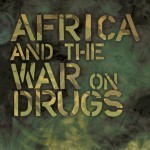What sort of state emerges?
There are different types of states that can emerge from the impact of such activities spanning two extreme polarities. At one end of this polarity is a superficially functional state that has all the trappings of superficially well-functioning and responsible public and private sectors.
In such case, the judiciary, police, customs, banks, parliaments will be in place and supposedly providing a veneer of effectiveness and international acceptability. What happens is that this type of state basically facilitates both the transit of drugs and the transfer of illegitimate wealth by using its relatively functioning institutions to facilitate such criminal activities.
A classic case is Mali—a state that is democratic, with the supporting institutions and the veneer of functionality and an acceptance from the international community that its democratic institutions are well-functioning.
A second state type is the usual fragile states that are easily identifiable by the lack of institutional capacity to deliver any public goods. The worst case scenario state or type 3 state is Guinea Bissau where the impact of narcotics contributes to the wayward behaviour of public officers and underscores the level of fragility that enables drug barons, with the allure of huge profits from drugs trafficking to control the levers of state authority. Subsequently, officials at all levels of government get involved in drugs and the profits that accrue thereof.
Mali, Sahel & Africa’s war on terror.
The crisis in Mali is having greater implications and ramifications than just a fight to resist the interdependent relationship among drug traffickers on one hand and extremists and radical groups. It is now a struggle against terrorism fuelled by narcotics; basically an African-centred version of the global war on terror fought by Africa’s former colonial masters and Mali’s neighbouring states shocked out of their lethargy and slumber by a rather late realisation that continued delay might threaten their states.
Suddenly, the George Bush administration’s top priority to combat terrorism, has come home to roost in Africa, albeit in a different form. Bush’s words to justify his war resonate with France’s justification of its unilateral intervention in Mali, namely that: “Our war on terror begins with al-Qaeda, but it does not end there. It will not end until every terrorist group of global reach has been found, stopped, and defeated.” Now, Al Qaeda in the Islamic Maghreb (AQIM); Boko Haram, Ansar Dine, the Islamic Movement for Azawad and the other myriad groups in West Africa are now legitimate targets.
Even though terrorist groups besides al-Qaeda exist in many parts of the world, the critical distinction is that AQIM and its affiliates now poses a threat not only to Africa, but to international peace and security and to the interests of the US, France, UK, Nigeria, Niger, Chad and Niger in particular.
Against this backdrop, the AQIM network, its sponsors and collaborators, have now become targets. Such resolve has culminated in expressions of concern from the UN. Since the launch of its unilateral intervention, the war on terror in Northern Mali and Algeria has become a lynchpin in French and British security calculations and an indispensable foreign policy determinant in Africa.
The war in Northern Mali has been characterized by a mix of conventional and asymmetric warfare. Conventional warfare entails direct engagement on land, sea, and/or air of two or more military forces, the present struggle as we see in Northern Mali presents a combination of military operations and guerrilla and urban-style warfare, conducted by the proponents of the intervention against terrorist groups and other non-state actors.
Terrorists, who are the main targets in the war, are scattered around the whole of the West African region without definitive geographical and territorial boundaries making it practically difficult for strategic or even tactical fixing, targeting and engagement.
The terminology of waging a “war” against terrorism was earlier on discounted and saw terrorism as a challenge to be managed, not solved by war and subject to the metaphor of waging a war against terrorism. This approach came from the view that “it is a war that cannot be won” and “unlike most wars, it has neither a fixed set of enemies nor the prospect of coming to closure.” Mali represents a confluence of drugs, war and terrorism.










